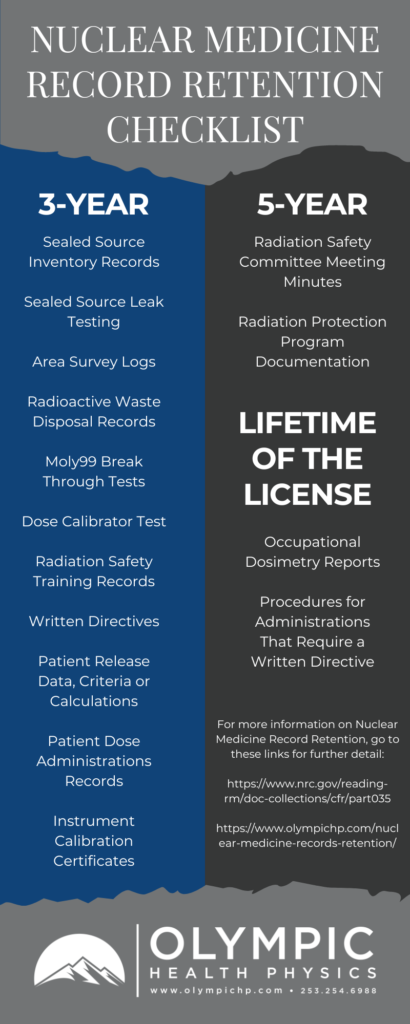How Long Do I Need To Keep Nuclear Medicine Records?

How Long Do I Need to Keep Nuclear Medicine Records?
As a Nuclear Medicine Technologist or imaging facility administrator, there are many required records and documentation to complete for compliance with NRC regulations. In this post, we break down the records you are required to keep and for how long.
Watch the video above on our YouTube channel as Eric talks about nuclear medicine records retention.
Nuclear Medicine Records Retention
The Nuclear Regulatory Commission has specific criteria regarding records and reports. For more information on individual record keeping, the NRC website has excellent resources you can find here.
Three-Year Retention Records
Most regulatory records in nuclear medicine fall within the three-year retention period.
The records that are required to retain for three years include:










Five-Year Retention Records
Next up is the five year retention period. These are the records that you’re going to need to keep for a period of five years:

License Lifetime Retention Records
Last, there are specific records that you need to retain for the duration of the radioactive materials license.
The records you must keep for the lifetime of the license include:

We hope that this article and video has provided you with some guidelines for your nuclear medicine record keeping and retention. If you have questions or comments, please reach out to us at info@olympichp.com and we’d be happy to assist you. We also offer various record keeping resources for download on our Resources and Forms page.
Your medical physicist is a great resource for you when designing your Radiation Safety Program. You can also always reach out to us if you have questions or want more information on Radiation Safety or want to see why you should partner with us. We also offer Radiation Safety Officer Services, Radiation Dose Optimization, and Health Physics Services.
